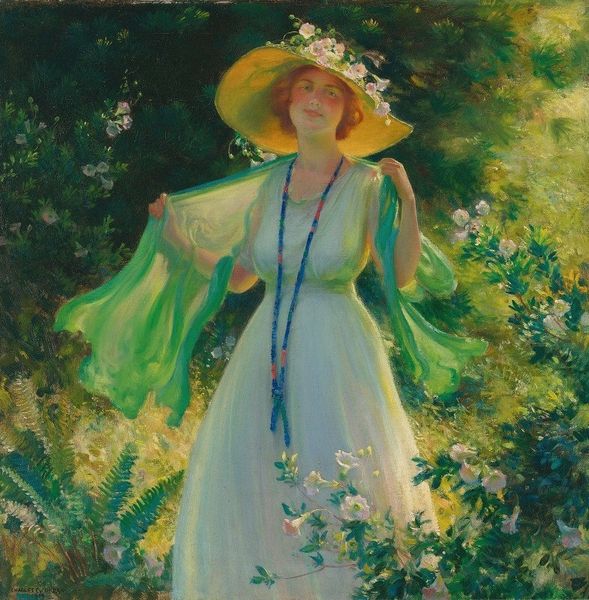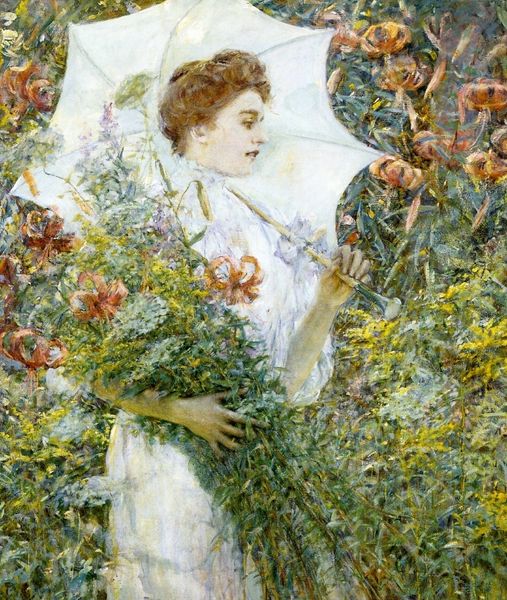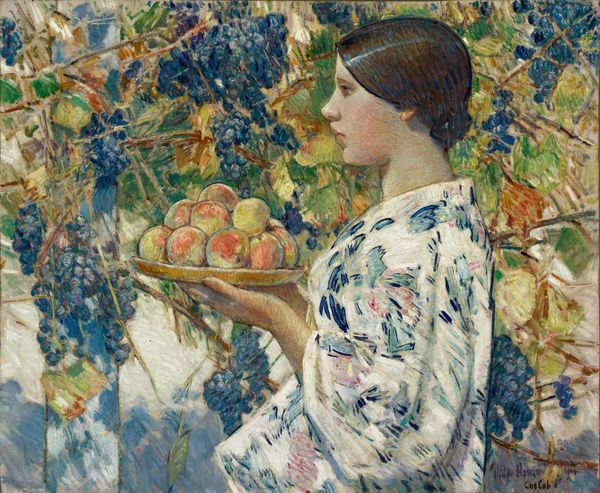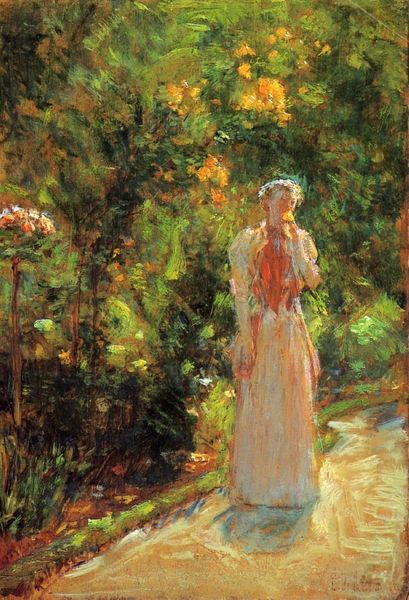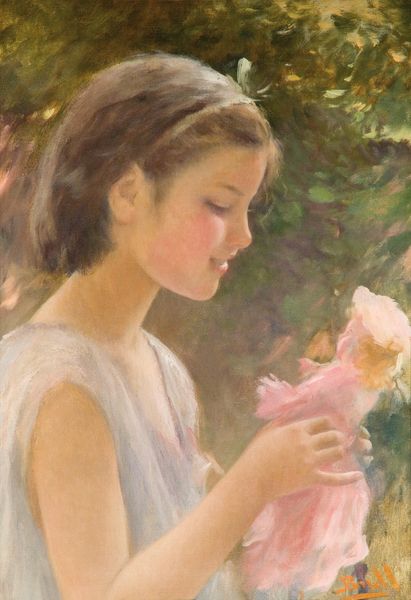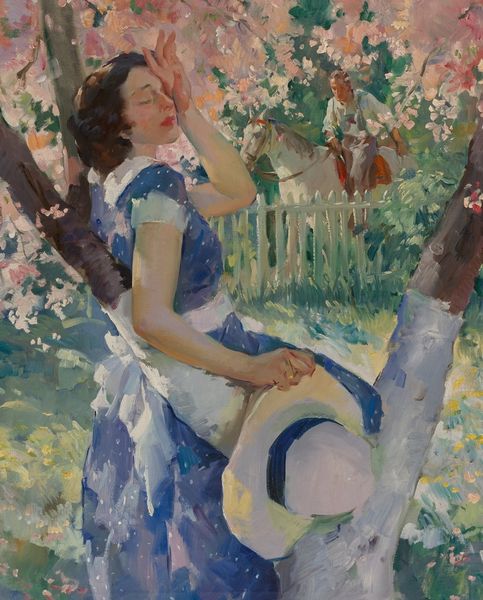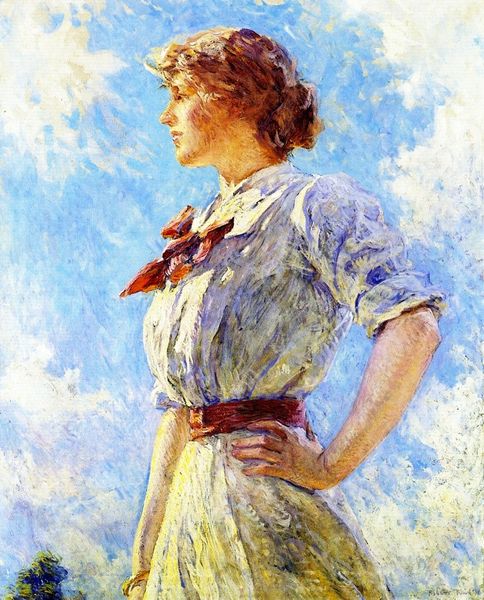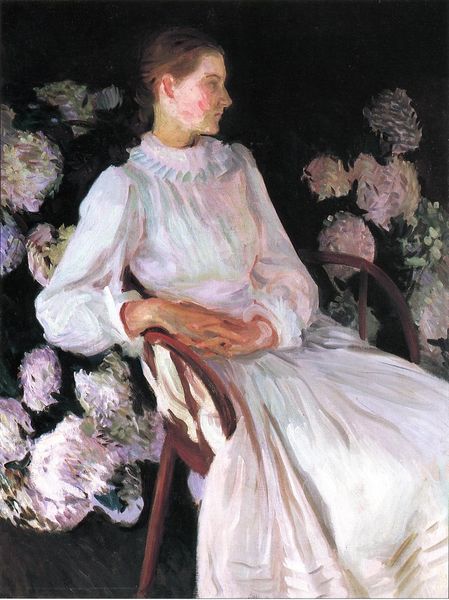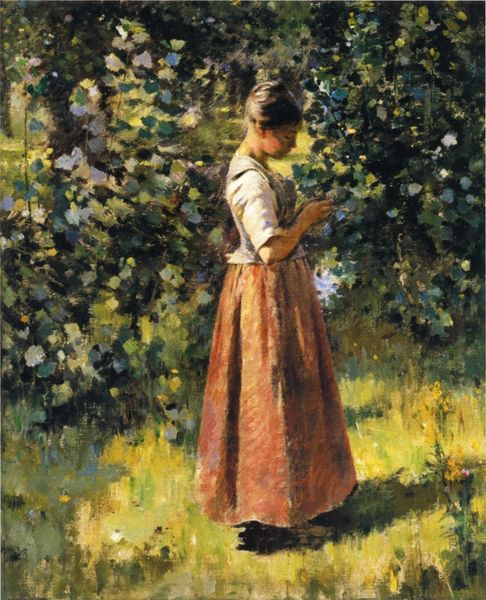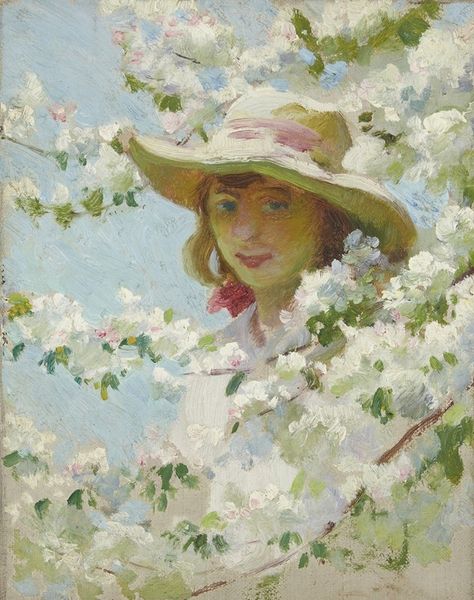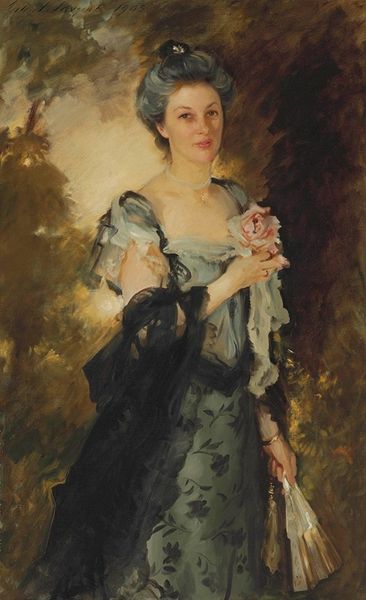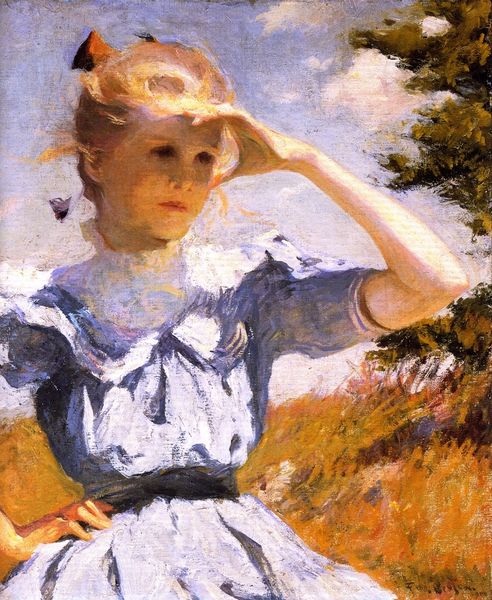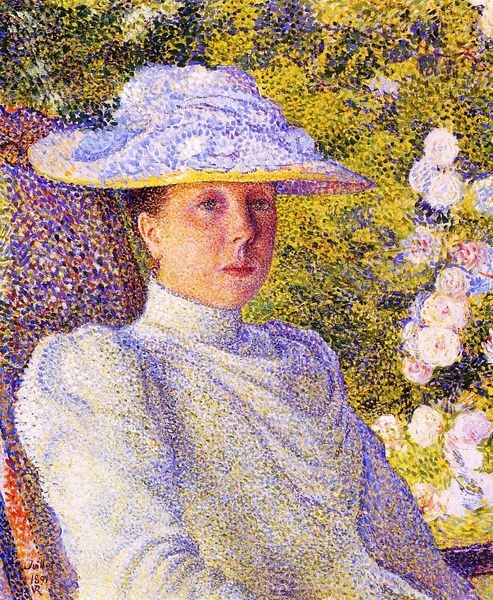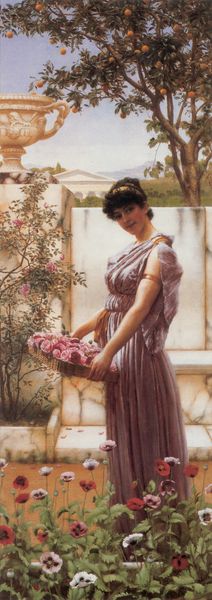
painting, plein-air, oil-paint
#
portrait
#
impressionist
#
painting
#
impressionism
#
plein-air
#
oil-paint
#
landscape
#
impressionist landscape
#
figuration
#
oil painting
Copyright: Public domain
Editor: So, this painting is "Autumn" by Robert Lewis Reid. It's an oil painting, probably done en plein air, depicting a woman surrounded by fall foliage. It's quite dreamlike! How do you interpret this work? Curator: This painting is incredibly interesting when viewed through the lens of late 19th-century representations of women and nature. Reid’s artistic production sits squarely within the rise of American Impressionism. Considering this context, I’d encourage you to think about the symbolism inherent in connecting women to the natural world. Editor: What kind of symbolism are you referring to? Curator: Often, such portrayals associated women with concepts like fertility, purity, and the cyclical nature of life. But I would push further - how does this tie to gendered societal expectations in this time? Reid was part of "The Ten," and, tellingly, the figure of the 'new woman' began to take shape. Does this depiction challenge those limitations, or does it perhaps reinforce a romanticized view, keeping her confined within nature's frame? Editor: I see what you mean. Is the woman presented as being an active participant or just existing within that space? She's sort of… ethereal. Curator: Exactly! Ask yourself: how does the Impressionistic style – the fleeting brushstrokes, the emphasis on light – contribute to this reading? Also, what message does that send regarding womanhood? Is this painting just about aesthetics, or does it also speak to cultural anxieties and aspirations regarding women's roles at the turn of the century? Editor: This really gives me something to think about. Seeing how artwork reflects or resists existing power structures is important. Thank you for making this clearer. Curator: Indeed. Understanding the visual arts means diving into both the historical contexts and how identities are made visible.
Comments
No comments
Be the first to comment and join the conversation on the ultimate creative platform.
